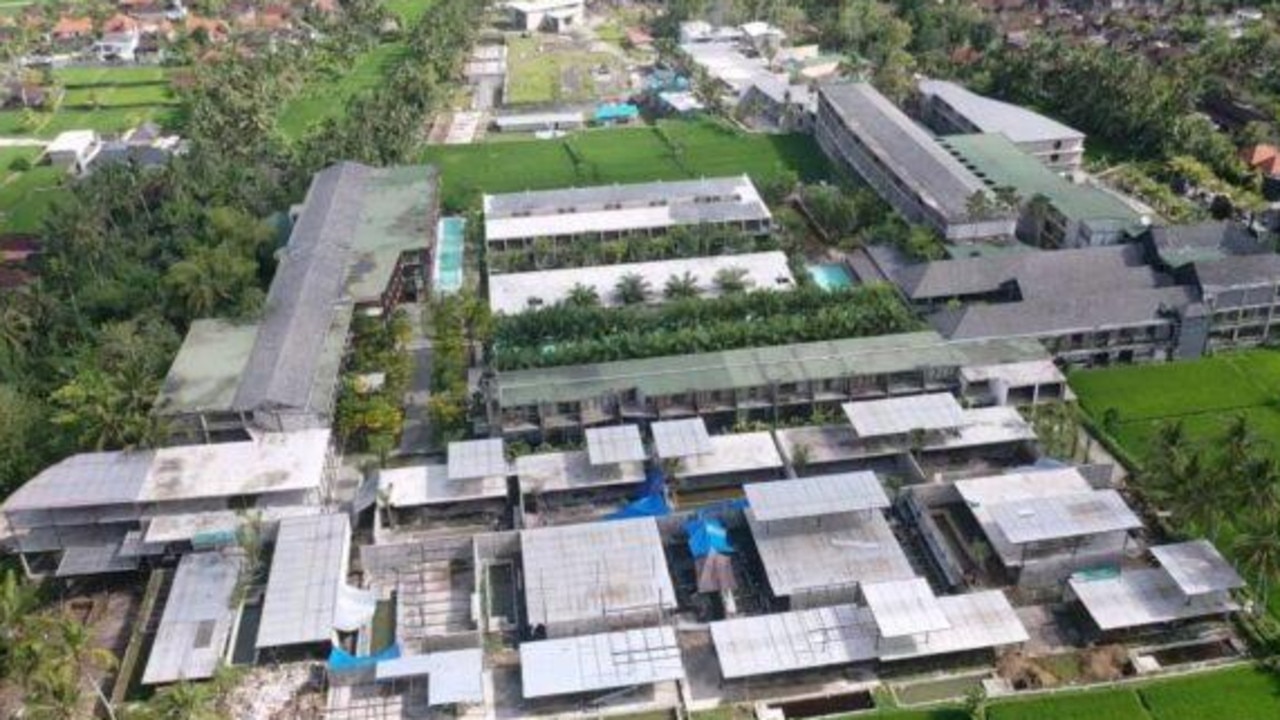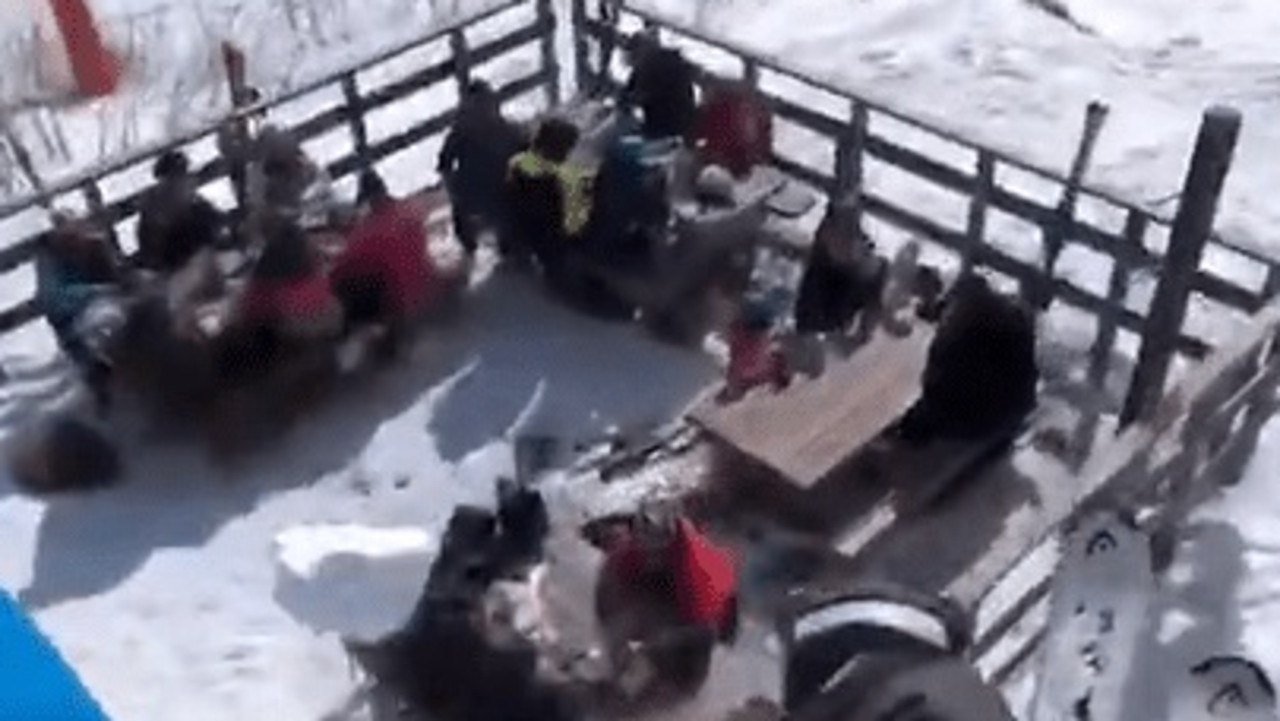Chaos as major Bali resort shut down
Chaotic scenes have erupted outside a major resort in Bali that was shut down by authorities, but locals are celebrating the move.

Tense scenes have played out outside a luxury accommodation, dining, and entertainment complex in Bali that has been forcefully shut down — leading to celebrations from locals.
The PARQ Residential Complex in Ubud — commonly referred to as “Russian Village” and described as a “global creative town for entrepreneurs, artists and investors” — has been shut down by local authorities due to multiple regulatory violations.
Locals are celebrating the closure of the foreigner enclave in the popular mountain village — which marks the first major pushback against an “annexation” of parts of Bali by Russians fleeing Ukraine war on their borders and conscription at home.

Parq is one of a growing number of self-contained “cities” sprouting across Bali that offer loopholes for foreigners wanting to invest in the island but prohibited from owning land under local law.
It boasts luxurious apartments for holiday-makers and those wanting to stay long-term.
However, there was not much relaxation going on inside Parq this week as hundreds of government security forces descended to kick everybody out — after owners ignored multiple requests to comply with local permit regulations and development restrictions.
Footage from outside the resort this week showed the closure process was tense, with individuals believed to be PARQ Ubud’s management attempting to obstruct hundreds of officials.
Amid lots of shouting and shoving, the government’s task force could be seen escorting the individuals out of the complex under tight security.
Locals celebrated the news on social media — with some accusing the Russians of causing trouble.

“Great news … they have no respect for the Balinese culture, nature or island. It’s time Bali, again, belongs to the Balinese and has appropriate tourism and expat management. Bali should live forever,” said one person.
“Fantastic. Bali needs to take back its identity and demand respect,” another added.
However, some locals were critical of the closure and those celebrating it.
“So sad to see many people being judgmental toward tourists from Russia based on the behaviour of a few irresponsible individuals,’ one said. “Before making such judgments, you should come and see for yourself. Most of them are friendly and polite. The issue lies solely in their permit compliance, so let’s stay on topic and avoid unnecessary generalisations.”
This is not the first time the site has been raided by officials, but it is the first time that closure notices have been put in place.
According to the Bali Sun, the complex was raided in November and the owners were not able to present valid business licenses.

It has now been temporarily closed until the business entity can complete the licensing permit process.
The Gianyar Regional Secretary, Dewa Alit Mudiarta told reporters, “When our team visited, they did not have basic licenses such as PBG (building approval) and SLF (functionality certificate).”
The closure is part of a broader initiative by Balinese authorities to enforce planning regulations and address concerns over foreign-owned developments that may not align with local cultural and environmental standards.
Bali Tourism Agency chief Tjok Bagus Pemayun told The Australian authorities had no choice but to close Parq because it violated planning regulations, which includes the protection of rice paddy terraces now rapidly disappearing under rampant development.
This is despite the compound marketing itself as being in harmony with Bali’s natural and built environment.
“They need to follow local regulations. Even the “dos and don’ts” guidelines must be fully implemented, like respecting the local culture, and so on,” Mr Pemayun said, alluding to local frustration at a perceived lack of respect among foreign tourists.
“Whoever the owner is, they must follow the regulations. Whether it’s a local or a foreigner.”
Many Russians have fled to South-East Asia to escape conscription and the dire economic situation in their homeland — investing in these so-called Russian villages.
Last August, Russia’s new ambassador to Jakarta was forced to defend his fellow citizens in Bali, insisting they were no more badly behaved than any other foreign tourist cohort.
“I don’t believe the people accusing Russian tourists of being the worst among foreign visitors who don’t obey local laws and customs in Bali,” Sergei Tolchenov said, adding that less than 45,000 Russian citizens lived in or visited the island. “I’m sure it’s not only Russians who commit crimes.”






